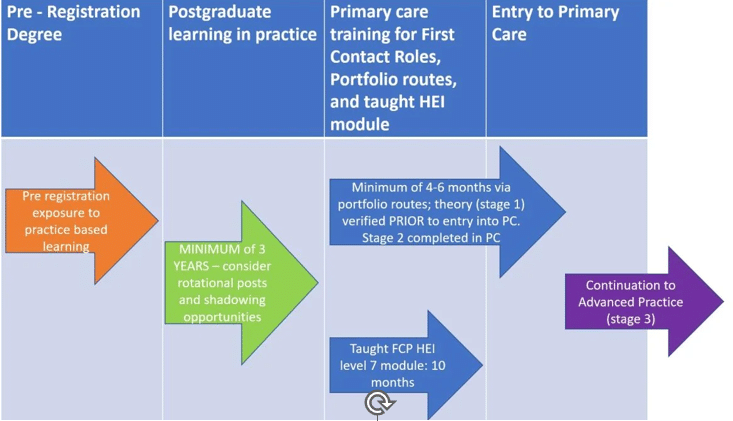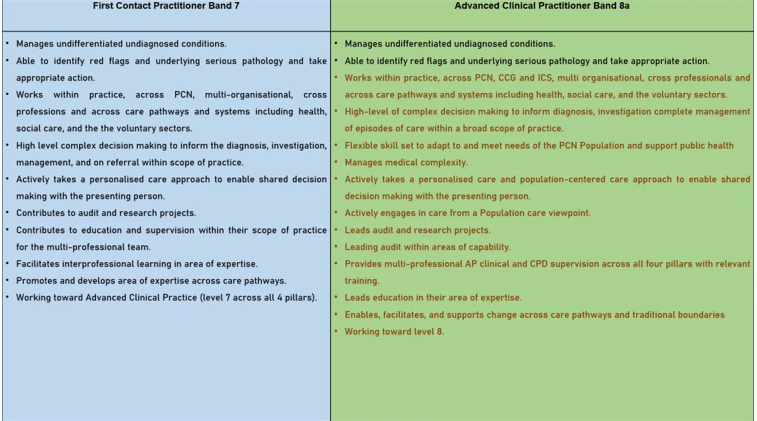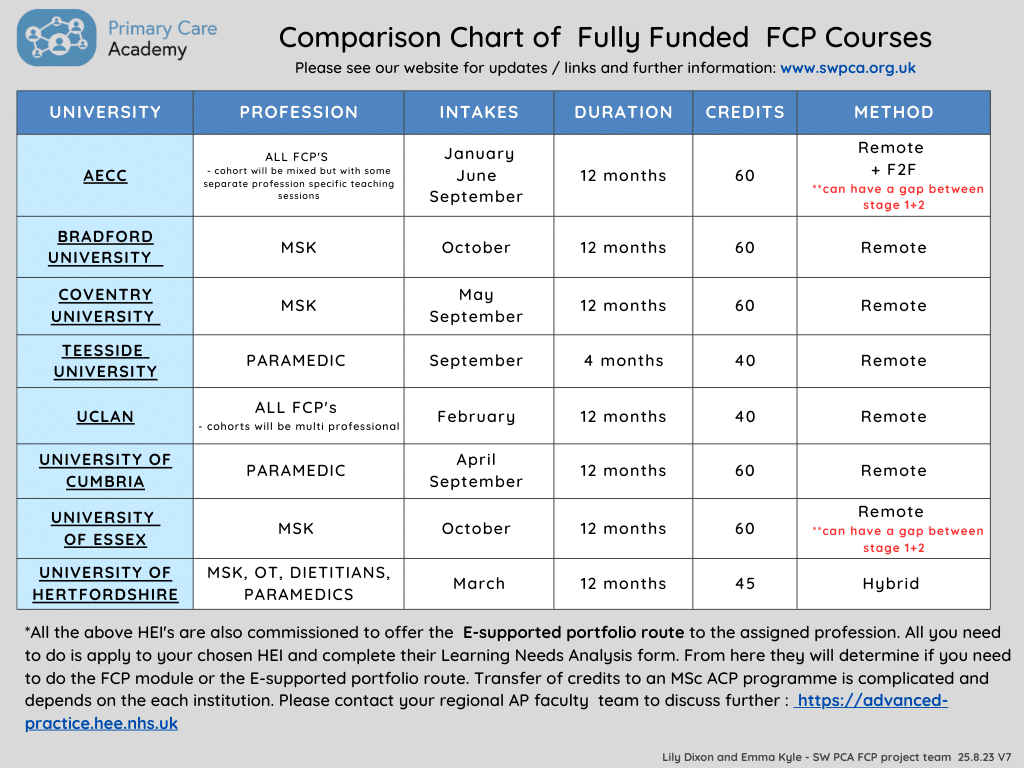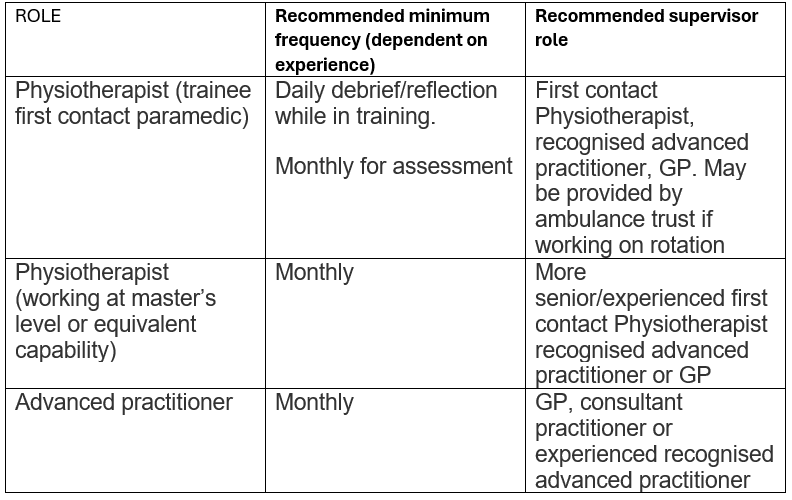What are First Contact Physiotherapists?
An First Contact Physiotherapist, is an experienced physiotherapist with advanced skills in assessing, diagnosing, and managing musculoskeletal (MSK) conditions, allowing them to be the first point of contact for patients with these issues. Instead of going to a GP first, patients can directly see an FCP physio at their GP surgery for conditions like back pain, neck pain, or joint pain by:
- assessing and diagnosing issues
- giving expert advice on how best to manage their conditions
- referring them onto specialist services if necessary.
For more information please read NHSE Roadmap to practice and the NHSE First contact physiotherapist guide.





